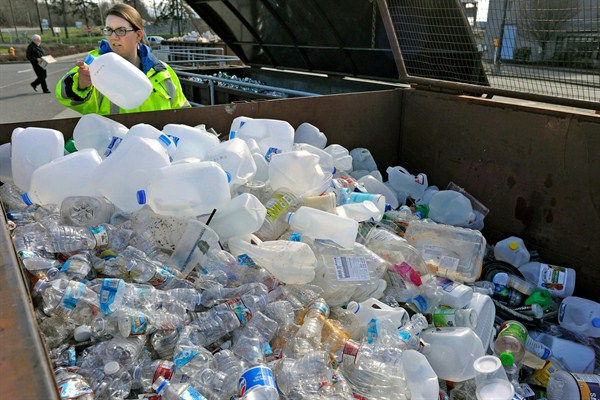Much of the world’s waste used to wind up in China and Southeast Asian countries like Thailand and Vietnam, but in recent years, they have all cracked down on imports of waste and recyclables. This has caused a major disruption in the global waste trade, leading to massive accumulations of plastic, cardboard and electronic waste in developed countries like the United States. According to Derek Kellenberg, an environmental economist at the University of Montana, this may be a turning point that forces the world’s major producers to finally reckon with the true social costs of waste. In an interview with WPR, he discusses what can be done about the under-the-radar crisis in international waste management.
World Politics Review: What is behind the recent decisions by countries like China, Thailand and Vietnam to crack down on imported recycling and electronic waste?
Derek Kellenberg: China, Thailand, Vietnam and Malaysia have recently enacted policies to limit inflows of harmful waste products that are often not recyclable and can have serious consequences for human health and the environment. For many years, China was a large importer of waste and recyclable materials, but the recycling industry had severe environmental impacts on parts of the country. In an effort to improve environmental quality, China began enforcing trade restrictions on recyclable materials and waste products in 2013 in what was known as Operation Green Fence. This was followed by the 2017 National Sword and 2018 Blue Sky policies, which substantially tightened enforcement and raised contamination standards on many categories of waste products, in addition to permanently banning 24 categories of waste imports.

